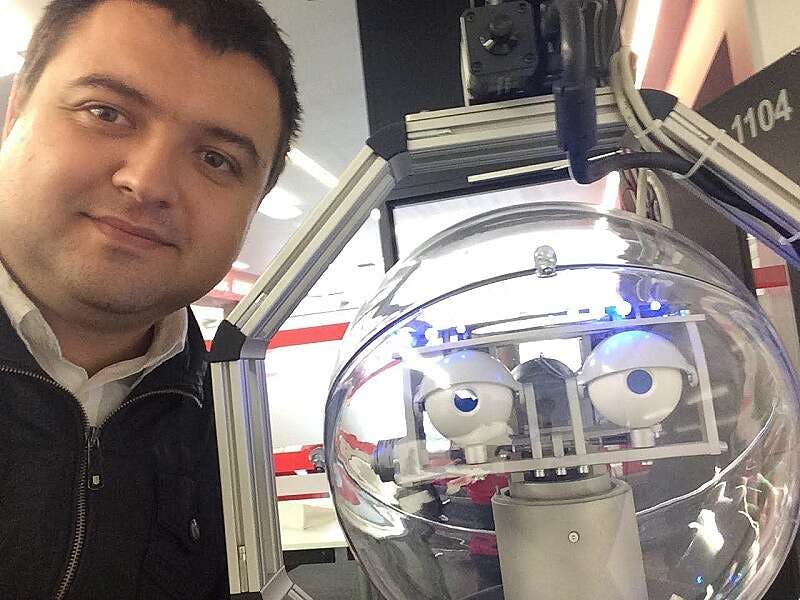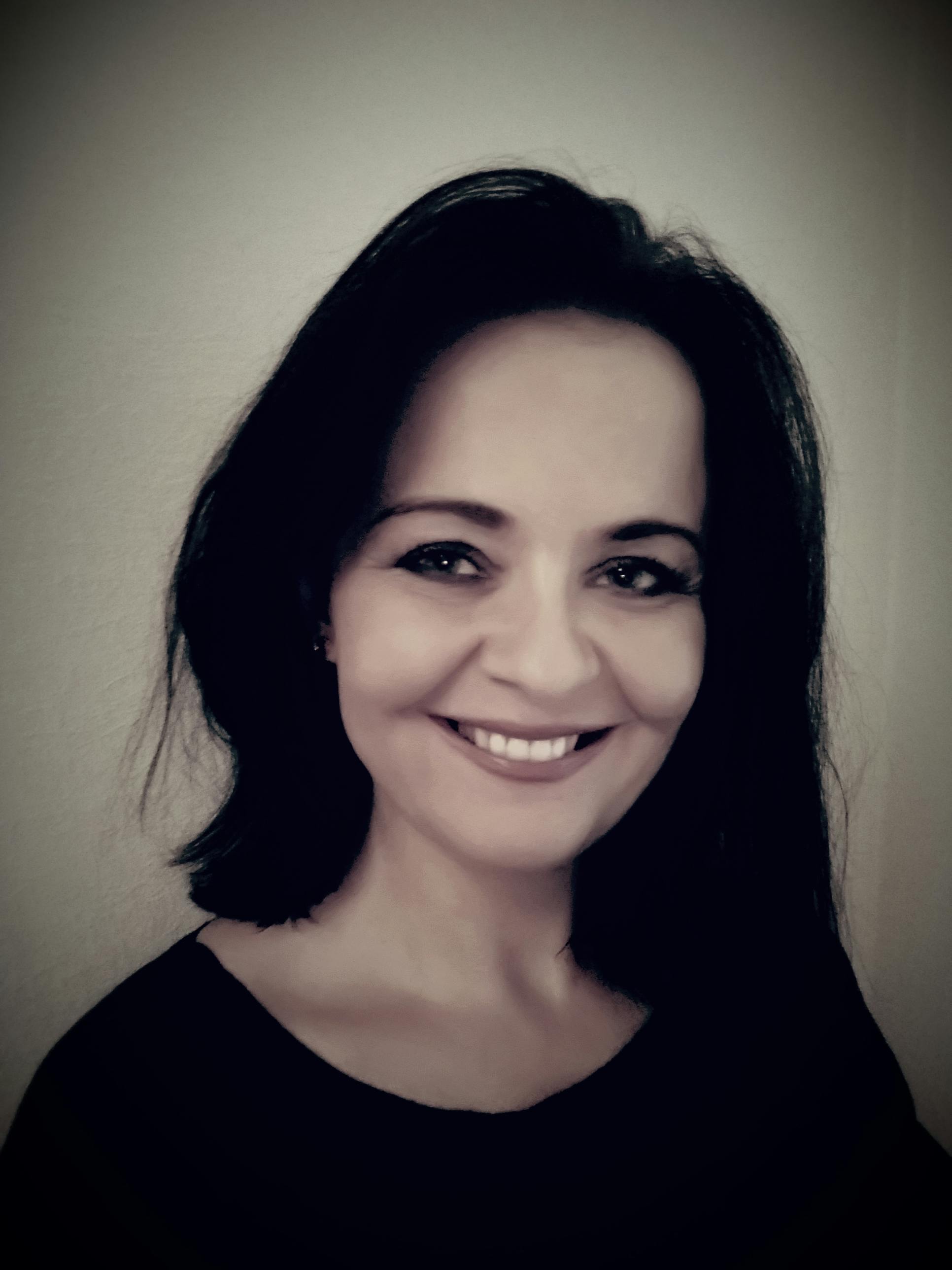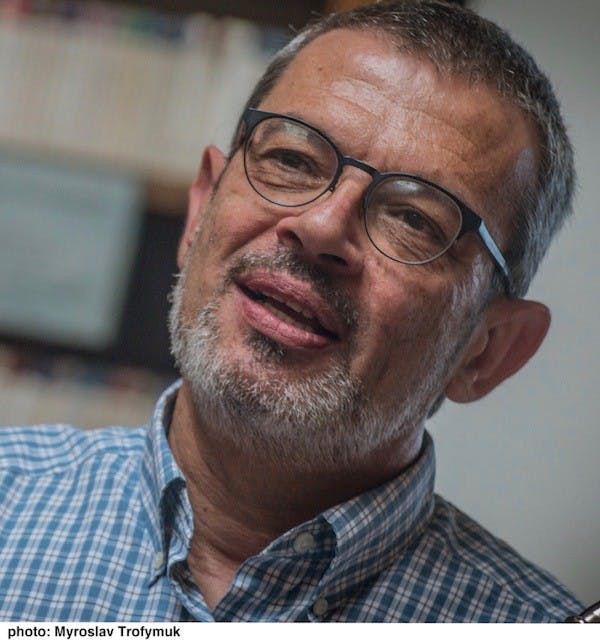Skip to content
Share
Explore

 Plenary speakers: Abstracts
Plenary speakers: Abstracts
Petre Lameski (Saints Cyril and Methodius University, North Macedonia): Linking AI and Natural Language Processing


Artificial intelligence (AI) has been applied to language processing since its inception in the last century. However, only lately, some major breakthroughs have been achieved in its application especially in regard to combining natural language processing (NLP), as part of the AI, with machine learning (ML). More precisely, the deep learning algorithms have taken the ML to a higher level, achieving much better state-of-the-art results. Some of the major breakthroughs were achieved in the past decade thanks to the deep learning algorithms, the transfer learning approaches and in the last several years, with the introduction of the attention mechanisms, such as Transformers.
In this presentation I am going to present the state-of-the-art approaches used for NLP for several applications such as text classification, conversational frameworks (chat bots), machine translation, text to speech and speech to text tasks with the emphasis on their practical usage and implementation. Specifically, several overviews will be presented: 1) an overview of the application of transfer learning using pre-trained models of similar languages to achieve speech recognition of a new language, comparing older and newer methods for their performance; 2) an overview of several applications of text classification for various domain use-cases; for example, churn prediction and customer satisfaction based on text corpuses; and 3) an overview of sentiment analysis application for various domains, one of which is restaurant success prediction. Finally, I am going to address text to speech achievements for the Macedonian language and discuss the future challenges in the field. (Abstract also available in .)
Keywords: Artificial intelligence, natural language processing, speech recognition, text classification, machine translation
Bio: Petre Lameski was born in 1985 in Kavadarci. In 2008 he graduated from the Faculty of Electrical Engineering and Information Technologies at the University of Sts Cyril and Methodius in Skopje, where he works as Assistant professor. From September 2008 until now he has been teaching Introduction to Robotics, Distributed Computer Systems, Artificial Intelligence, Algorithms for Data Analysis, Information Systems and Mobile Information Systems. His research interests include Intelligent Robotics Systems, Machine Intelligence, Cognitive Systems and Cognitive Robotics, Time Series Data Analysis, Wireless Sensor and Actor Systems, etc.
Loraine McKay (Griffith University, Australia) Exploring the contribution of arts-based reflection to strengthen teachers' identity development


A culture of surveillance and accountability, increasing workloads, lack of autonomy, and challenging student behaviour are identified as factors contributing to lower levels of teachers’ job satisfaction and ultimately their sense of well-being. The uncertain times as a consequence of the global pandemic have also exacerbated these negative outcomes for teachers who may also be experiencing empathy fatigue and vicarious trauma while assisting colleagues, students and families. How then can we prepare and support teachers to navigate the personal and professional challenges in their day-to-day work, especially for those teachers working in challenging communities or with children from trauma backgrounds? In this presentation we will explore the value of the arts in supporting identity development that incorporates self-care, resilience, and agency. In particular, we examine the use of photo-elicitation, collage, poetry, and graffiti boards, and the flexibility they provide as tools for reflection. While the presentation will focus on experiences of using arts-based reflection with preservice and in-service teachers, connections will be made evident in how arts-based reflection can be used across the life-span and within multiple contexts. As we engage on this journey, participants will be encouraged to reflect on how arts-based methods could be a useful strategy in their own lives and the lives of those with whom they work.
Key words: Arts-based research; identity; resilience; self-care; agency; teachers and teaching; reflection and reflexivity
Bio: Dr Loraine McKay is a Senior Lecturer in the School of Education and Professional Studies at Griffith University, Australia. She is currently Program Director of the Master of Primary Teaching Program. Her research interests are associated with preservice teacher identity development. She used arts-based processes to engage preservice teachers in various forms of reflection to examine sociocultural and personal factors that support identity, agency, resilience and wellbeing, and to explore the affective nature of teaching. She is passionate about social justice and the role that education and teachers can play in improving life opportunities for all children, particularly those who experience trauma.
Silvia Schultermandl (University of Münster, Germany): Instagirls as Quick Media Feminist Icons


Feminist art projects on social media have successfully called attention to cultural practices and notions of identity which deliberately go against mainstream assumptions of womanhood. Often through auto-performative responses to sexist and misogynistic tropes, they impel audiences to question late-capitalist and neoliberal constructions of “girl-hood.” In my talk, I will look at Instagram art projects which critically engage with the trope of the so-called Insta-girl in an attempt to raise issues about the cultural constructions of girlhood on social media and in “real life.” With the help of two case studies – Amalia Ulman’s Excellences & Perfections and Noa Jansma’s Dear Catcallers, I will discuss the production, circulation, and consumption of a particular type of Insta-girl which appeals to audiences via modes of fetishization and abjection. Jansma’s work consists of selfies she took with random men who catcalled her. The documentary character of her project supports her aim to record the nature, extent, and frequency of catcalling she experienced. In turn, Amalia Ulman’s Excellences & Perfections critiques the trope of the Insta-girl, a postfeminist, late-capitalist figure characterized by her “oversharing” of intimate details about her everyday life. Both artists received strong reactions from their followers for their playful adaptations of the genre of Insta-girl life narratives. The use of pastiche in their own Insta-narratives incites comments about authenticity and, in turn, throws into relief the inherent misogyny at play when “girls’” authorial practices are called into question.
Keywords: social media, feminist art, affect, precarity, life writing
Bio: Silvia Schultermandl is Professor and Chair of American Studies at the University of Münster. She is the author of Transnational Matrilineage: Mother-Daughter Conflicts in Asian American Literature (2009) and Ambivalent Transnational Belonging in American Literature (2021) and co-editor of eight collections of essays which explore various themes in transnational studies, American literature and culture, as well as family and kinship studies. Her articles have appeared in the following journals, among others: Meridians, Atlantic Studies, Interactions, Journal of Transnational American Studies, and Journal of American Culture. She is currently developing the Palgrave Series in Kinship, Representation, and Difference and is embarking on a new project on kinship and social media. Her areas of interest include affect theory, literary theory, critical race theory, queer theory, aesthetics, and transnational feminism.
Monika Kopytowska (University of Lodz, Poland): Language, distance and (mediated) social reality


While language itself is a powerful tool in the social construction process (Berger and Luckmann 1991/1966: 40) and the prerequisite for the existence of other social institutions (Searle 1995), media, considered the source of “pictures in our heads [...] of the external world that is out of reach, out of sight, out of mind” (Lippmann 1922: 29), have undoubtedly transformed and accelerated this process. As observed by Urry (2002), people aim for proximity within three dimensions – with other people in face-to-face interactions, with unique locations in face-to-place interactions, and with special events in face-to-moment interactions, which has been termed by Boden and Molotch (1994: 258, 277) as “compulsion of proximity”. Enabling mediated forms of such interactions, technological affordances of the media together with language have thus satisfied the basic human need, which has gained particular relevance in the aftermath of the Covid-19 crisis bringing about travel restrictions, lockdowns and quarantine. Thanks to its near-instantaneous, dialogic, and decentralized nature and interactivity, cyberspace, in particular, has become an ultra-attractive site for interpersonal and professional communication, socio-political debate, citizen participation, and a more direct and effective communication between political elites and the rest of the society (Kopytowska 2020).
Starting from the tenets of proximization theory as developed by Chilton (2004, 2005, 2010, 2014) and Cap (2006, 2013, 2017) on the one hand and Searle’s theory of social ontology (1995, 2006, 2010) on the other, the presentation discusses the Media Proximization Approach (Kopytowska 2013, 2014, 2015a, 2015b, 2015c, 2018a, 2018b, 2020) as a perspective on the construction of (mediated) social reality. Key in this approach are distance-related operations of media text prosumers (both journalists and social media users) enabled by media “techno-discursive design” and “prosumption” dynamics (KhosraviNik 2014, 2017, 2018). Discursive practices, along with verbal and visual strategies, help to reduce temporal, spatial, axiological, epistemic and emotional dimensions of distance, which in turn impacts on how social relations and the Other are constructed, and how, more generally, certain phenomena, groups or individuals acquire their axiologically and emotionally imbued representations, often with real life implications, within the sphere of collective consciousness. In the presentation we will try to answer the following questions: (1) How do technological affordances and language shape distance dynamics, thus entrusting individuals and institutions with quasi-status functions and deontic powers, reconfiguring relations and bringing about material consequences? (2) How do the structural and functional features of online communication influence its uniting and dividing potential, and how anonymity, on one hand, and mass public accessibility, on the other, enhance these processes?
Bio: Monika Kopytowska received her Ph.D. from the University of Lodz, Poland, where she is currently affiliated with the Department of Pragmatics. Her research interests revolve around media discourse and the pragma-rhetorical aspects of the mass-mediated representation of conflict, ethnicity, and religion. She has published internationally in linguistic journals and volumes.
Aron Aji (University of Iowa, USA): Literary Translation and the Ethics of Hospitality


In global circulation of international literature, translations into English are often considered either as a proof of ‘fame’ or, more likely, as an entryway to broader and more diverse international reading markets. The venues and networks that facilitate the international literary exchange through English obtain significant roles in shaping the ethics and aesthetics of literary translation—from what gets translated to how, why and by whom. In this new context, the literary translator can resist the traditional call to make the original work read “as if written in English” and, instead, capitalize on the intrinsic mutability/hybridity of the English language so it can better express the aesthetics of other languages, especially in cases of less frequently translated world languages. The practice field of literary translation as such becomes a regenerative site for both the guest (source) and the host (target) languages.
Bio: Aron Aji, Director of MFA in Literary Translation at the University of Iowa, is a native of Turkey, and has translated works by modern and contemporary Turkish writers, including Karasu’s The Garden of Departed Cats, (2004 National Translation Award); and A Long Day’s Evening, (NEA Literature Fellowship; short-list, 2013 PEN Translation Prize). His forthcoming translations include Ferid Edgü’s Wounded Age and Eastern Tales (NYRB, 2022), and Mungan’s Tales of Valor (co-translated with David Gramling) (Global Humanities Translation Prize, Northwestern UP, 2022). Aji was president of The American Literary Translators Association between 2016-2019.
Want to print your doc?
This is not the way.
This is not the way.

Try clicking the ··· in the right corner or using a keyboard shortcut (
CtrlP
) instead.